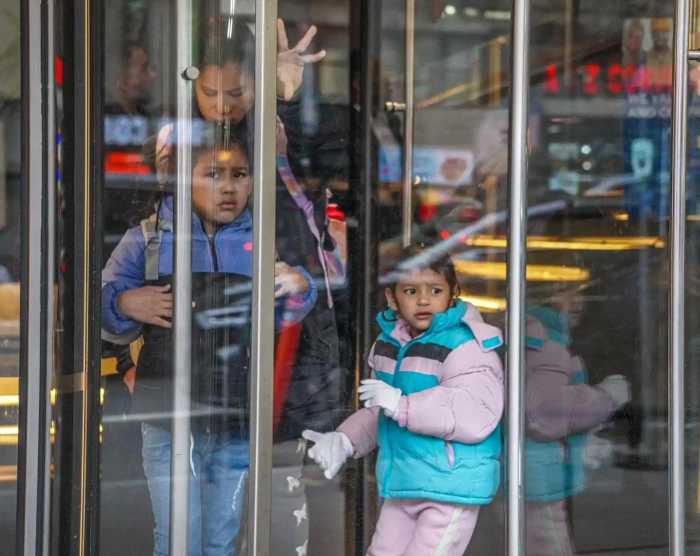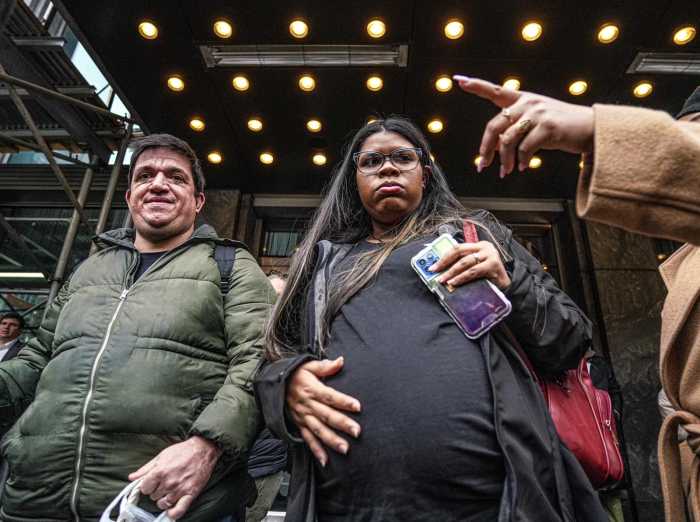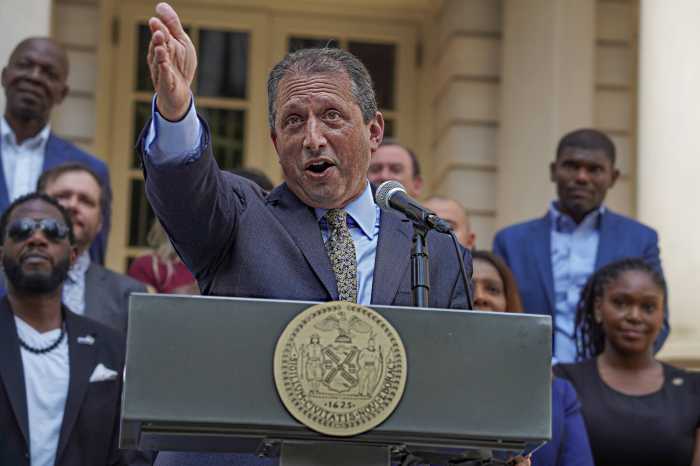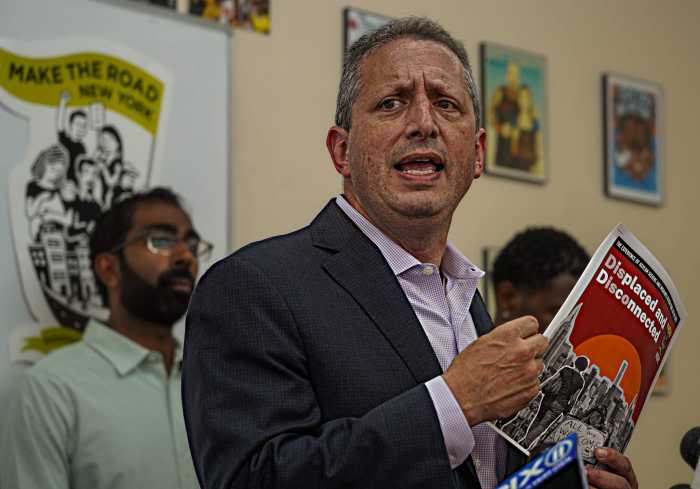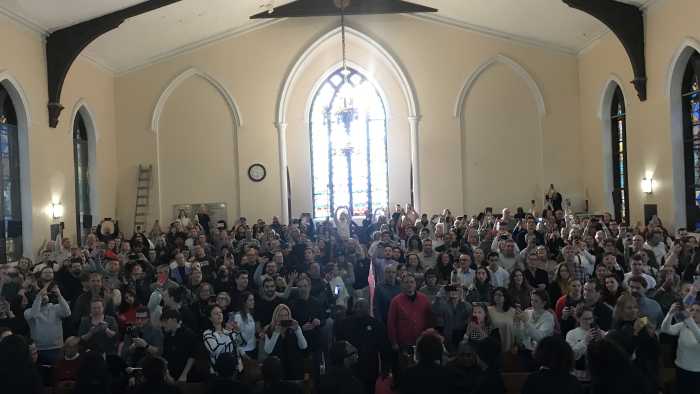Mayor Eric Adams’ administration on Tuesday opened the competitive bidding process for a pair of migrant services contracts held by the controversial shelter provider DocGo.
Adams’ office announced a new request for proposals (RFP) for a vendor that will take over the “Asylee Flex” program to house and provide services to roughly 4,000 migrants living in hotels in the city and upstate.
The RFP, according to a City Hall spokesperson, encompasses service provision covered by a $432 million no-bid contract for migrant services and a separate $41 million deal to run a mega-shelter in Long Island City, Queens. Shelters in the city covered under the first contract were transfered to another provider — Garner Environmental Services — for the duration of the deal, while DocGo will still run 13 shelters upstate through the end of the year. DocGo also holds the Queens shelter contract until September.
DocGo could reapply for the contract through competitive bidding and be selected by the city once again — though a company spokesperson said it will “review the RFP and determine whether to re-bid.” The city announced in early April that it would not renew its no-bid contract with DocGo and would instead pursue a competitive bidding process.
The mayor said the move will help cut the cost of providing housing and resources to the over 200,000 migrants who have arrived in New York since 2022. It follows other belt-tightening measures his administration has taken like implementing 30 and 60-day time limits for migrant shelter stays.
“The RFP we’re putting out today will help us find even more savings, making sure we get the most out of every taxpayer dollar,” Adams said, in a statement.
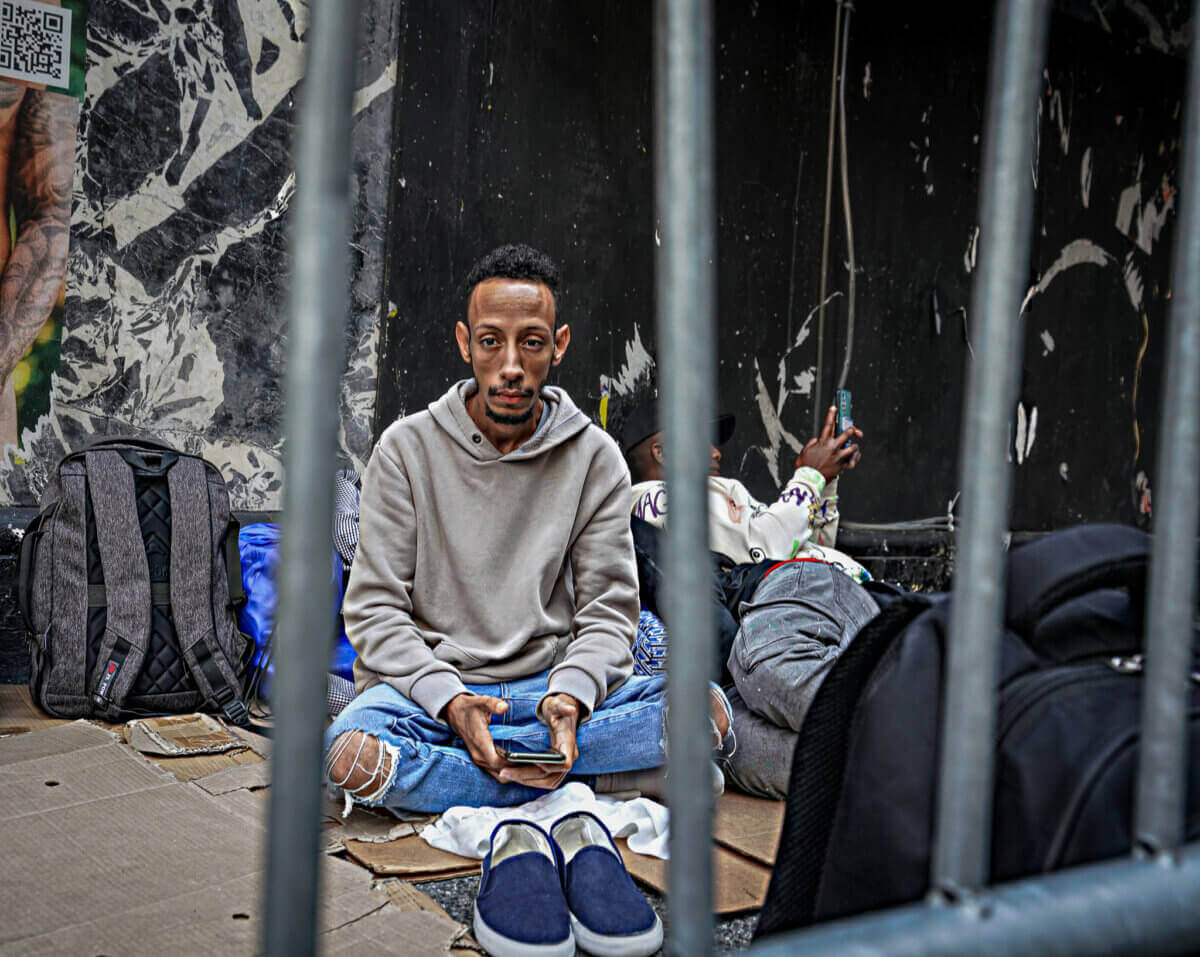
The program, which is run by the city Department of Housing Preservation and Development (HPD), currently serves 2,400 migrants at 13 hotels in the five boroughs, and another 1,600 at 13 hotels outside of the city.
The RFP requires applicants to demonstrate their qualifications, provide detailed plans for how they would run the program, and submit budget proposals for the contract, according to the mayor’s office.
The selected contractor will manage relationships with hotels and other involved parties, as well as offer services like shelter, food, security and case management, according to City Hall. They will take over operations for the program’s already existing sites and may add new locations as well.
The administration issued the RFP after more than a year of criticism over how it has handled issuing numerous emergency migrant services contracts that did not go through competitive bidding.
The city caught flak for its contract with DocGo in particular. The company has been criticized for its lack of prior experience in shelter provision, and following allegations that security guards it hired mistreated migrants. Reports also indicated that it wasted substantial amounts of food.
A DocGo spokesperson sought to defend the company’s record during the last contract period. They said the new RFP is part of the city’s “typical” emergency contracting process and that the company “welcomes” it.
“Our work has been unfairly criticized, at times vilified, because it was awarded under an emergency order,” the DocGo spokesperson said. “Further, an independent on-site audit from the New York State Office of Temporary and Disability Assistance (OTDA) confirmed the quality of our program and services. DocGo performs its work with responsibility, fiscal oversight and cost controls.”
City Comptroller Brad Lander has been a vocal critic of the city’s use of emergency no-bid contracts throughout the migrant crisis. He rejected the $432 million no-bid contract with DocGo last September after — a decision the mayor overruled — and then revoked the administration’s blanket prior approval for issuing emergency contracts.
But Lander, in a Tuesday statement, applauded City Hall’s move toward issuing RFPs instead of no-bid contracts.
“After two years, it is good to finally see the Adams Administration move toward replacing expiring emergency contracts for asylum seeker services with vendors selected through a competitive bid process,” Lander said. “Competitive bidding leads to better prices, better oversight, and better vendors.”
Read more: Police seek suspects in fatal Washington Heights stabbing




